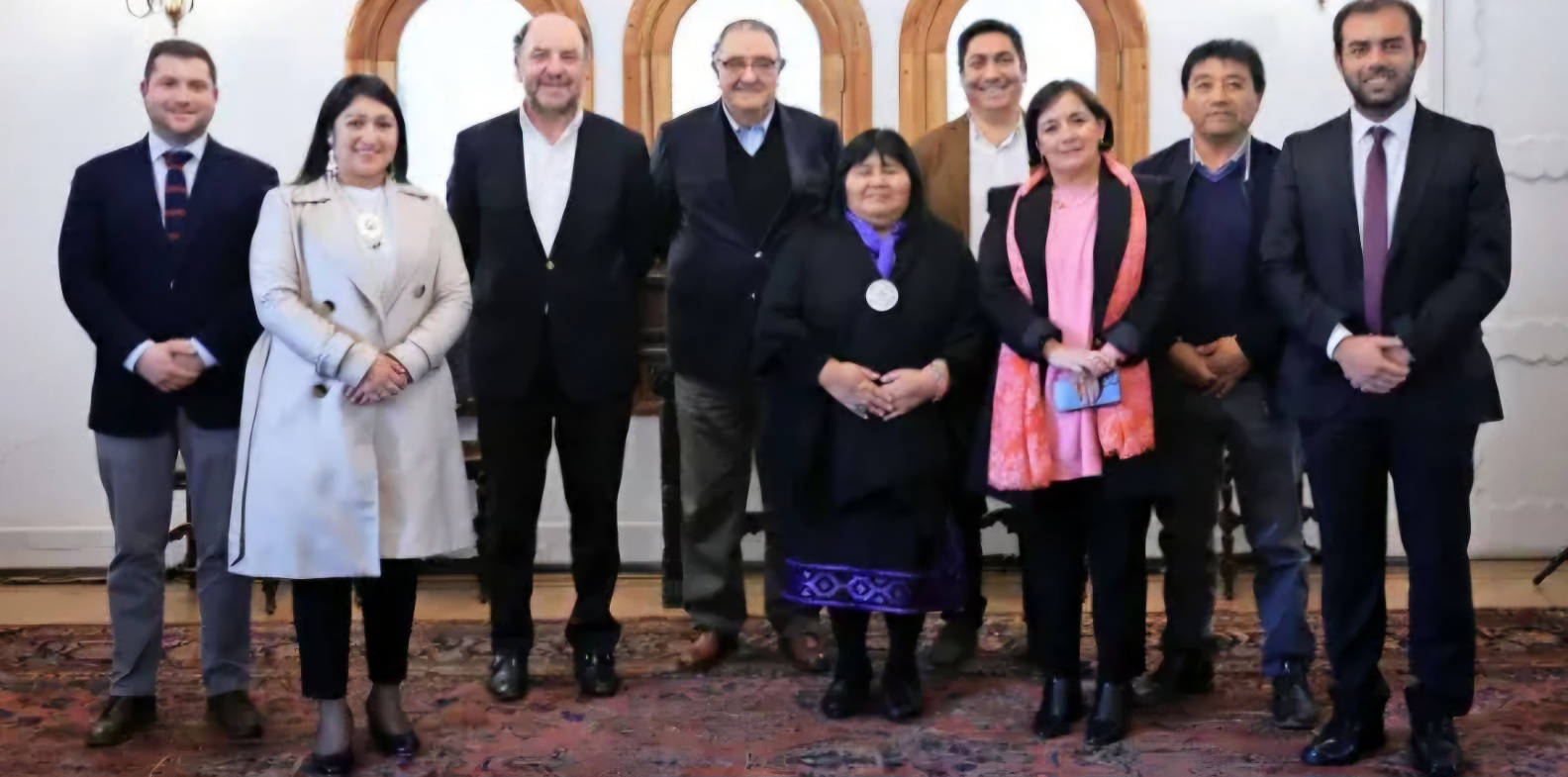Concern was expressed by the Confederation of Production and Commerce (CPC) along with other unions regarding the final report of the Presidential Commission for Peace and Understanding.
In the early hours of Thursday, around 2:30 AM and via telematics, the last session of the commission, composed of eight members, concluded. Connected to a meeting managed from La Moneda by Víctor Ramos, Undersecretary of the Interior and executive secretary of the commission, they had to vote on each of the 22 points of the agreement, achieving 87% approval. The dissenting vote from the president of the Malleco Farmers' Association, Sebastián Naveillán, prevented unanimity. The leader voted in favor of six points and against 16.
The commission is expected to deliver its report to the President on Tuesday at 10:30 AM.
"Warning Sign"
The lack of unanimity was criticized by the CPC through its president, Susana Jiménez, who acknowledged the effort made but pointed out that the goal of achieving a long-term solution was not met.
"It has been reported that the commission did not achieve unanimity among its members due to legitimate differences in some conclusions and proposals. According to the commission's own stipulations, this lack of unanimity on relevant matters means the document cannot be approved, which signifies that the intended goal of consolidating a long-term solution to the land conflict and establishing a new relationship between the Chilean State and the Mapuche people was not achieved," stated the representative.
Patricio Santibáñez, president of the Multigremial of La Araucanía, noted that "the commission itself had set unanimity as a requirement, and therefore it would have been better if it had been achieved." He added, "There are positive aspects, but we are certain there are debatable points, such as the amounts."
Roberto Heise, president of the Temuco Development Society (Sofo), stated, "The fact that a representative of the farmers did not vote in favor is undoubtedly a warning sign." This was echoed by Antonio Walker, president of the National Farmers' Society: "There were sensitive issues that caused division, and the fact that Sebastián Naveillán, president of the Malleco Farmers, did not sign concerns us," though he valued the effort made.
A different stance was taken by Hugo Alcamán, president of the Mapuche corporation Enama, who celebrated the agreement and argued that "the mere fact that seven of the eight commissioners were fully in agreement (...) means the document is robust."
Meanwhile, former Conadi director Domingo Namuncura, who had previously stated that if the report was born with "forceps and significant difficulties," it would be a defeat for the government, now said he would "view it positively (...) since it's one out of eight, the greater weight lies in the fact that seven commissioners endorsed it."
240 Thousand Hectares
Sebastián Naveillán explained, "I conceded on several points; I believe some things could be achieved, and they were."
But he clarified, "I rejected everything related to land because its current wording jeopardizes our food security, creates legal uncertainty, and, in practice, mortgages the future of the south and the entire country."
"The proposed text suggests handing over 240 thousand hectares of land as territorial reparation. It claims that 100 thousand hectares would come from public lands, but there is no technical document or official record to support this. In fact, there is a high probability these lands are located in national parks, border areas with Argentina, or strategic zones, posing a geopolitical risk."
He specified that the document "opens the door to legal claims and potential international demands for failing to guarantee what was promised. This creates an undeclared but enforceable right, perpetuating the conflict rather than resolving it," and that "there is no financial report from the Ministry of Finance certifying the feasibility of the proposal. It is estimated the cost would be around US$4 billion, considering a minimum of 10 hectares per family at an average value of $7 million per hectare. That amounts to at least $70 million per beneficiary family."
"Very High Self-Imposed Standard"
Senator Carmen Gloria Aravena explained that the unanimity requirement "was never part of the decree establishing this commission." She added that after two years of work, "I am pleased with the results in terms of what the President asked of us," such as the land registry and victims' law, which she said is "100% developed."
She added, "His (Naveillán's) stance is legitimate, but I believe it is much better than what exists today."
Commission co-president Francisco Huenchumilla (DC) stated, "We set a very high self-imposed standard because unanimity does not typically exist in democratic processes (...). From that high standard, we achieved an optimal result of 7 to 1, so we have fulfilled that task. Now it is up to the Executive and the parties to decide on the work we did."
Source:El Mercurio







Comments (0)
No comments yet. Be the first to comment!
Leave a comment